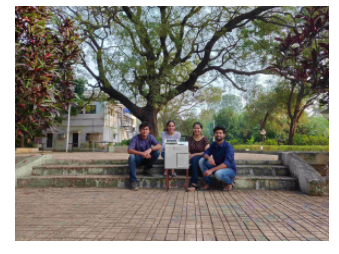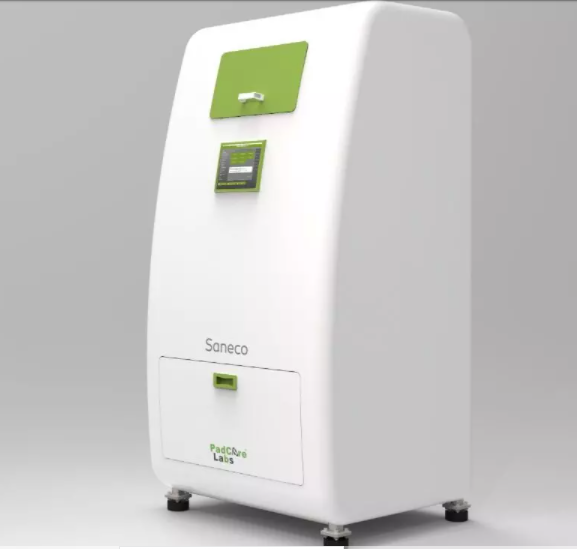Although sanitary napkins have transformed the menstruation experience worldwide, it has thrown up a significant challenge to the environmental cause. Every year a whopping twelve billion sanitary napkins are generated, and with no proper disposal option, 98% of this waste goes to landfills and water bodies. A single pad takes 500 to 800 years to decompose completely, leaving a carbon footprint of 3.2 kg.
After doing in-depth research on menstrual hygiene waste management (MHM), PadCare Labs founder Ajinkiya Dhariya came up with a solution and invented the world’s first smokeless sanitary napkin disposal and recycling system.
Dhariya started this venture in 2018 with the idea of his final year project of waste management. He identified that there is no proper treatment for sanitary disposal and other biomedical waste. After in-depth research and many consumer behaviours studies at Pune and by conducting thousand plus consumer surveys, they found that females need accessible eco-friendly disposal of the mechanism by maintaining their privacy. The waste produces a toxin and is degrading landfills. Installation of PadCare is the only scientific method that comes along with no side effects. The survey revealed that the customers and organisations didn’t know how to dispose of such waste and did not follow a sustainable development goal.
The team of 7 includes people from various backgrounds, namely engineers, production, manufacturing background, science in the biotech and micro bio, and operation designers.

How do PadCare works? The organisation has SANIBIN, a small, compact device installed in the washroom where such hazardous waste is collected. Padcare labs collect this waste every fortnightly, and with the SANIBIN mechanism (works on vapour phase technology and certified by government norms) starts the disposal work.
The collected waste goes to the central processing unit called SANECO, which works on the mechanical chemo principle and provides 5D’s Disinfection, Deodorizations, De-colorization, Disintegration, Deactivation (super absorbent polymer). Adding star mark to that, the waste coming out of this can be reused and recycle. It is like segregated cellulose in the plastic with over 80% material recovery. The sterilised output waste is used to make plant pots, paper, fuel, or hand over to recyclers to get a value out of it. This cubical installation is free of cost, and it doesn’t require electricity.
“Right now, we neglect menstrual hygiene. In India, we observe urban India is much better, but in rural India, menstrual hygiene is still taboo Recently our Prime Minister, Modiji talked about accessibility for each woman, so it is a kind of government supporting and breaking silence on MHM’s. We are the agent of change by developing decentralised mechanisms of waste handling,” said Ajinkiya founder in conversation with The Earthview.
PadCare labs is supported by many organisations like NITI Aayog and TATA trust. It has been also recognised and supported by the Maharashtra government.
“As this is world’s first technology, there were many challenges from the technical side there were product development problems, timeline pressure, but we are lucky to have our team as they are mission-oriented,” says Ajinkiya Dhariya.
He further informed, “We have installed PadCare machine at a different location for over five years. They are serving over 1500 plus women on daily basis. Also helping nature and diverting up to 2500 waste monthly which earlier used to go directly to landfill.”
PadCare Labs innovation follows the complete process and saves the environment by segregating waste, collecting waste, processing, and recycling waste. They are tackling two significant issues simultaneously with their innovation, not just care about the environment but also menstrual hygiene.
“We all can save mother earth by inventions and alternative methods like we are doing, but we also have to keep the consumer at the centre. All should shift a sustainable lifestyle which will, of course, take time. Plastic will no longer be an issue if we know how to treat our waste also if we manage our waste carefully,” said Ajinkiya while he signs off.
Written By: Vartika Prasad

